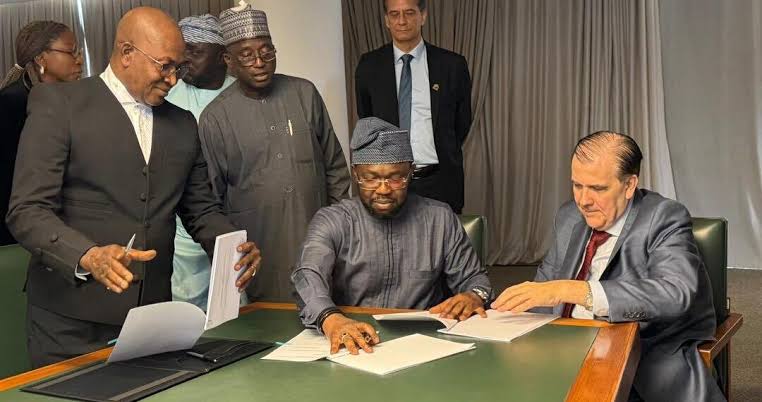Nigeria and Brazil announced a bold new partnership worth $1 billion, called the “Green Imperative” initiative. The agreement was signed in Abuja during a visit by Brazil’s Vice President, Geraldo Alckmin, and received strong backing from Nigeria’s Vice President, Kashim Shettima. This landmark deal aims to drive Nigeria away from traditional subsistence farming and toward a mechanized, commercially viable agricultural sector.
The initiative will introduce a comprehensive range of mechanization tools, set up equipment service centers across Nigeria, and launch intensive training programs for local farmers. According to Shettima, the agreement is part of President Bola Tinubu’s long‑term “Renewed Hope” agenda, which aims to build a resilient economic foundation and transform Nigeria into a $1 trillion economy by 2030.
While agriculture is at the heart of this agreement, its benefits extend far beyond farms. The pact includes ambitious investments in the energy sector, focusing on gas production, refining, and clean, renewable technologies. It also advances Nigeria and Brazil’s cooperation in defense and security, with special attention to training, intelligence-sharing, and joint operational planning. Both nations expressed a strong commitment to working together on these priorities to deepen mutual trust and shared benefits.
During the signing, Vice President Shettima emphasized that this agreement was more than just a financial transaction, it was a statement of Nigeria’s determination to harness its resources for long‑term prosperity. He pointed out that the partnership would help Nigeria move away from overreliance on crude oil, providing more opportunities for growth in agriculture and other vital industries.
The agreement also includes provisions for strengthening institutional collaboration across agriculture, energy, security, culture, and education. Experts believe this approach can foster greater economic diversification, reduce unemployment, and boost Nigeria’s global standing as a rising economic powerhouse.
For Brazil, the agreement signifies an expanding role in Nigeria and West Africa, aligning with its own focus on deepening South‑South economic and technical cooperation. The Vice President of Brazil expressed optimism that this initiative would deepen bilateral ties between both nations and benefit their citizens for generations.
With Nigeria and Brazil committing to working hand‑in‑hand, this agreement is set to mark a pivotal chapter in Nigeria’s economic journey making agriculture a catalyst for growth and a cornerstone for long‑term national development.
